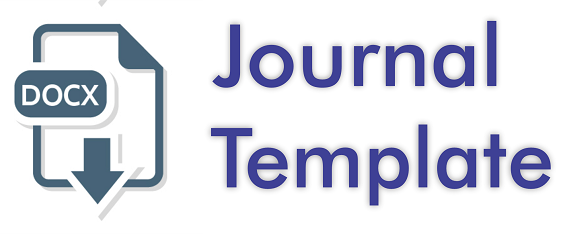Memahami Peran Karakteristik Bisnis dalam Menghadapi Tantangan Global
DOI:
https://doi.org/10.59107/ri.v3i1.72Keywords:
Strategic Flexibility, Innovation, Business Characteristics, Sustainability, Global ChallengesAbstract
This study examines the critical role of business characteristics in addressing the complexity of global challenges. The main objective is to identify and analyze key business characteristics that enhance resilience and adaptability in the face of international markets, technological advancements, and socio-political changes. Using a literature review method approach, this study seeks to further examine the critical role of business characteristics in addressing the complexity of its global challenges. The results of the analysis indicate that businesses that emphasize innovation, strategic planning errors, and strong stakeholder engagement are better equipped to manage global business. In addition, this study highlights the importance of cultural competence and sustainability practices as critical factors contributing to long-term success. These insights provide valuable guidance for businesses seeking to strengthen their competitive advantage and resilience in an increasingly connected world.
Downloads
References
Anggraeni, R., & Maulani, I. E. (2023). Pengaruh Teknologi Informasi Terhadap Perkembangan Bisnis Modern. Jurnal Sosial Teknologi, 3(2), 94–98.
Anisah, A. L., Pradani, T., Yusuf, R., Dianawati, E., Saluby, W. S., Anggraeni, I., Ma’rifah, D., Marlina, S., Zega, Y., Hidayat, D., & others. (2023). Pengantar Bisnis. EDUPEDIA Publisher, 1–160.
Budiarti, R. H. S. (2023). Manajemen Pemasaran Global Dalam Meningkatkan Kepuasan Konsumen dan Keberhasilan Bisnis. https://doi.org/https://doi.org/10.32670/coopetition.v14i2.3763
Erwin, E., Subagja, A. D., Masliardi, A., Hansopaheluwakan, S., Kurniawan, S. D., Darmanto, E. B., & Muksin, N. N. (2023). Bisnis Digital: Strategi dan Teknik Pemasaran Terkini. PT. Green Pustaka Indonesia.
Fauzan, R., Daga, R., Sudirjo, F., Soputra, J. H., Waworuntu, A., Madrianah, M., Widarman, A., Verawaty, V., Hasniaty, H., & Risakotta, T. K. (2023). Produk dan Merek. PT. Global Eksekutif Teknologi.
Fonna, N. (2019). Pengembangan revolusi industri 4.0 dalam berbagai bidang. Guepedia.
Fuady, I. F., & others. (2020). EVALUASI KEGAGALAN BISNIS WISDOM PILLOW DITINJAU DARI ASPEK SUMBER DAYA MANUSIA. Jurnal Performa: Jurnal Manajemen Dan Start-up Bisnis, 5(1), 26–34.
Hardiyanti, A. A. (2023). PENGARUH CUSTOMER CAPITAL DAN ORIENTASI PELAYANAN TERHADAP LOYALITAS PELANGGAN MELALUI KEPUASAN PELANGGAN SHOPEE (Studi Kasus Pada Mahasiswa Program Magister Manajemen Fakultas Ekonomi dan Bisnis Universitas Hasanuddin Makassar)= The Influence Of Customer. Universitas Hasanuddin.
Hartatik, H., Rukmana, A. Y., Efitra, E., Mukhlis, I. R., Aksenta, A., Ratnaningrum, L. P. R. A., & Efdison, Z. (2023). TREN TECHNOPRENEURSHIP: Strategi & Inovasi Pengembangan Bisnis Kekinian dengan Teknologi Digital. PT. Sonpedia Publishing Indonesia.
Heriansyah, D. (2024). Pengaruh Corporate Governance, Profitabilitas, Likuiditas Dan Solvabilitas Terhadap Corporate Social Responsibility (CSR) Disclosure: Literatur
Review. Management Studies and Entrepreneurship Journal (MSEJ), 5(2), 5062–5080.
Hizbandyah, B. N., Silvia, L., Nurahma, S., & Prawira, I. F. A. (2023). Inovasi Amazon dalam Menerapkan Teknologi sebagai Strategi Bisnis terhadap Keunggulan Bersaing. JATISI (Jurnal Teknik Informatika Dan Sistem Informasi), 10(4).
Istiqomah, N. H. (2023). Transformasi Pemasaran Tradisional ke e-Marketing: Tinjauan Literatur tentang Dampak Penggunaan Teknologi Digital terhadap Daya Saing Pemasaran Bisnis. Jurnal Ekonomi Syariah Darussalam, 4(2), 72–87.
Kamaluddin, I. H. A., & Patta Rapanna, S. E. (2017). Administrasi bisnis (Vol. 1). Sah Media.
Karim, R. N. S. (2022). Pemberdayaan Ekonomi Masyarakat Melalui Optimalisasi Pengembangan dan Inovasi Bisnis Jamu Migunani Herbal. ALMUJTAMAE: Jurnal Pengabdian Masyarakat, 2(2), 185–190.
Kartawinata, B. R. (2020). pengantar bisnis (B. R. Kartawinata (ed.)). WIDINA BHAKTI PERSADA BANDUNG. https://repository.penerbitwidina.com/media/publications/325381-pengantar-bisnis-7cb4308b.pdf
Khairunnisa, H. (2023, September 14). Pentingnya Mengetahui Karakter Bisnis Sebelum Memulainya. Delegasi. https://www.delegasi.co/blog/pentingnya-mengetahui-karakter-bisnis-sebelum-memulainya#:~:text=Karakter bisnis mengacu pada serangkaian,perusahaan%2C dan posisi di pasar.
M Hidayatuloh. (2020, May 18). Tantangan Bisnis dalam Pasar Global. Kompasiana. https://www.kompasiana.com/muhamadhidayatuloh/5ec1bf89097f36525169c4e2/tantangan-bisnis-dalam-pasar-global?lgn_method=google
Mardikaningsih, R. (2023). Strategi Inovasi Dan Pemasaran Media Sosial Untuk Meningkatkan Keunggulan Kompetitif Umkm Di Kota Surabaya. Jurnal Baruna Horizon, 6(2), 58–67.
Maskhulin, P. I. A., Setyawan, W. P., Andarini, S., & Kusumasari, I. R. (2024). MEMAHAMI DAN MENGELOLA RISIKO BISNIS DALAM PERENCANAAN DAN PENGEMBANGAN BISNIS. Neraca: Jurnal Ekonomi, Manajemen Dan Akuntansi, 2(4), 194–203.
Nasution, A. H., & Kartajaya, H. (2018). Inovasi. Penerbit Andi.
Nasution, S., & Suhairi. (2023). Strategi Manajemen Ekonomi Dalam Menghadapi Tantangan Global. Musytari: Neraca Manajemen, Akuntansi …, 2(5).
Rahmawati, S., & Sugito, S. (2024). Efektivitas Pelatihan Positioning Branding Dalam Meningkatkan Brand Equity Bagi Pelaku UMKM Kelurahan Tenggilis Mejoyo Kota Surabaya. Jurnal Akademik Pengabdian Masyarakat, 2(2), 24–31. https://doi.org/https://doi.org/10.61722/japm.v2i2.1085
Ramadhan, F. F., Ambarwati, N., & Utama, R. E. (2024). VISI, MISI, TUJUAN, SASARAN, DAN FALSAFAH PERUSAHAAN. Musytari: Neraca Manajemen, Akuntansi, Dan Ekonomi, 3(5), 133–142.
Rambe, D. N. S., & Aslami, N. (2022). Analisis Strategi Pemasaran Dalam Pasar Global. El-Mujtama: Jurnal Pengabdian Masyarakat, 1(2), 213–223. https://doi.org/10.47467/elmujtama.v1i2.853
Ridwan, M., Suhar, A. M., Ulum, B., & Muhammad, F. (2021). Pentingnya penerapan literature review pada penelitian ilmiah. Jurnal Masohi, 2(1), 42–51.
Rifda. (2023, December 1). Pengertian Bisnis dan Definisi Menurut Ahli. Izin.Co.Id. https://izin.co.id/indonesia-business-tips/2023/12/01/pengertian-bisnis/
Rizki, F. (2023, August 24). Pentingnya Inovasi Bisnis Di Era Digital Bagi Perusahaan. MARKPLUS INSTITUE. https://markplusinstitute.com/explore/apa-itu-inovasi-bisnis/
Rochmawati, D. R., Hatimatunnisani, H., & Veranita, M. (2023). Mengembangkan Strategi Bisnis di Era Transformasi Digital. https://doi.org/https://doi.org/10.32670/coopetition.v14i1.3076
Salwa, R., & Nasution, M. I. P. (2024). Inovasi Bisnis Organisasi Melalui Pemanfaatan Sistem Dan Teknologi Informasi. CEMERLANG: Jurnal Manajemen Dan Ekonomi Bisnis, 4(1), 21–31.
Satya, S., & Khornida, D. (2023). Perancangan Promosi Periklanan dan Penjualan Melalui Media Sosial pada COFFEED. Jurnal Pengabdian Kepada Masyarakat Nusantara, 4(1), 2078–2084. http://ejournal.sisfokomtek.org/index.php/jpkm/article/view/759
Simarmata, D., & Situmorang, D. M. (2023). Penerapan sistem informasi akuntansi kota batam. Jurnal Kewirausahaan Bukit Pengharapan, 3(1), 38–51.
Sitanggang, P. S. (2022). Strategi Pemasaran Global terhadap Netflix. ULIL ALBAB: Jurnal Ilmiah Multidisiplin, 1(9), 3026–3035.
Sunarto, A. (2020). Pengembangan Sumber Daya Manusia dengan Berbasis Inovasi Untuk Menghadapi Revolusi Industri 4.0. Jurnal Ilmiah Manajemen, Ekonomi, & Akuntansi (MEA), 4(2), 397–407.
Syairozi, M. I., Rosyad, S., & others. (2022). Inovasi Daun Lontar Untuk Meningkatkan Produktivitas Masyarakat Desa Lawanganagung. Jurnal Pengabdian Kepada Masyarakat Nusantara, 3(1), 131–136.
Triyono, T., & Febriani, R. D. (2018). Pentingnya pemanfaatan teknologi informasi oleh guru bimbingan dan konseling. Jurnal Wahana Konseling, 1(2), 74–83.
Tyoso, J. S. P., & Haryanti, C. S. (2020). Perlukah Mempertahankan Keunggulan Kompetitif oleh UMKM?(Studi Kasus UMKM Semarang). Jurnal Maksipreneur: Manajemen, Koperasi, Dan Entrepreneurship, 9(2), 123–135.
Downloads
Published
Issue
Section
License
Copyright (c) 2024 RISALAH IQTISADIYAH: Journal of Sharia Economics

This work is licensed under a Creative Commons Attribution 4.0 International License.
License
The non-commercial use of the article will be governed by the Creative Commons Attribution license as currently displayed on http://creativecommons.org/licenses/by/4.0/. This licence allows the user to distribute, remix, tweak, and build upon the licensed work, including for commercial purposes, as long as the original author is credited.
Author’s Warranties
The author warrants that the article is original, written by stated author/s, has not been published before, contains no unlawful statements, does not infringe the rights of others, is subject to copyright that is vested exclusively in the author and free of any third party rights, and that any necessary written permissions to quote from other sources have been obtained by the author/s.
User Rights
Under the Creative Commons Attribution license, the author(s) and users are free to share (copy, distribute and transmit the contribution).
Rights of Authors
Authors retain the following rights:
- copyright, and other proprietary rights relating to the article, such as patent rights,
- the right to use the substance of the article in future own works, including lectures and books,
- the right to reproduce the article for own purposes, provided the copies are not offered for sale,
- the right to self-archive the article.
Co-Authorship
If the article was prepared jointly with other authors, the signatory of this form warrants that he/she has been authorized by all co-authors to sign this agreement on their behalf, and agrees to inform his/her co-authors of the terms of this agreement.
Termination
This agreement can be terminated by the author or RISALAH IQTISADIYAH: JOURNAL OF SHARIA ECONOMICS upon two months’ notice where the other party has materially breached this agreement and failed to remedy such breach within a month of being given the terminating party’s notice requesting such breach to be remedied. No breach or violation of this agreement will cause this agreement or any license granted in it to terminate automatically or affect the definition of RISALAH IQTISADIYAH: JOURNAL OF SHARIA ECONOMICS.
Royalties
This agreement entitles the author to no royalties or other fees. To such extent as legally permissible, the author waives his or her right to collect royalties relative to the article in respect of any use of the article by RISALAH IQTISADIYAH: JOURNAL OF SHARIA ECONOMICS or its sublicensee.
Miscellaneous
RISALAH IQTISADIYAH: JOURNAL OF SHARIA ECONOMICS will publish the article (or have it published) in the Journal, if the article’s editorial process is successfully completed and RISALAH IQTISADIYAH: JOURNAL OF SHARIA ECONOMICS or its sublicensee has become obligated to have the article published. RISALAH IQTISADIYAH: JOURNAL OF SHARIA ECONOMICS may conform the article to a style of punctuation, spelling, capitalization and usage that it deems appropriate. The author acknowledges that the article may be published so that it will be publicly accessible and such access will be free of charge for the readers. RISALAH IQTISADIYAH: JOURNAL OF SHARIA ECONOMICS will be allowed to sublicense the rights that are licensed to it under this agreement.


.png)
.png)






